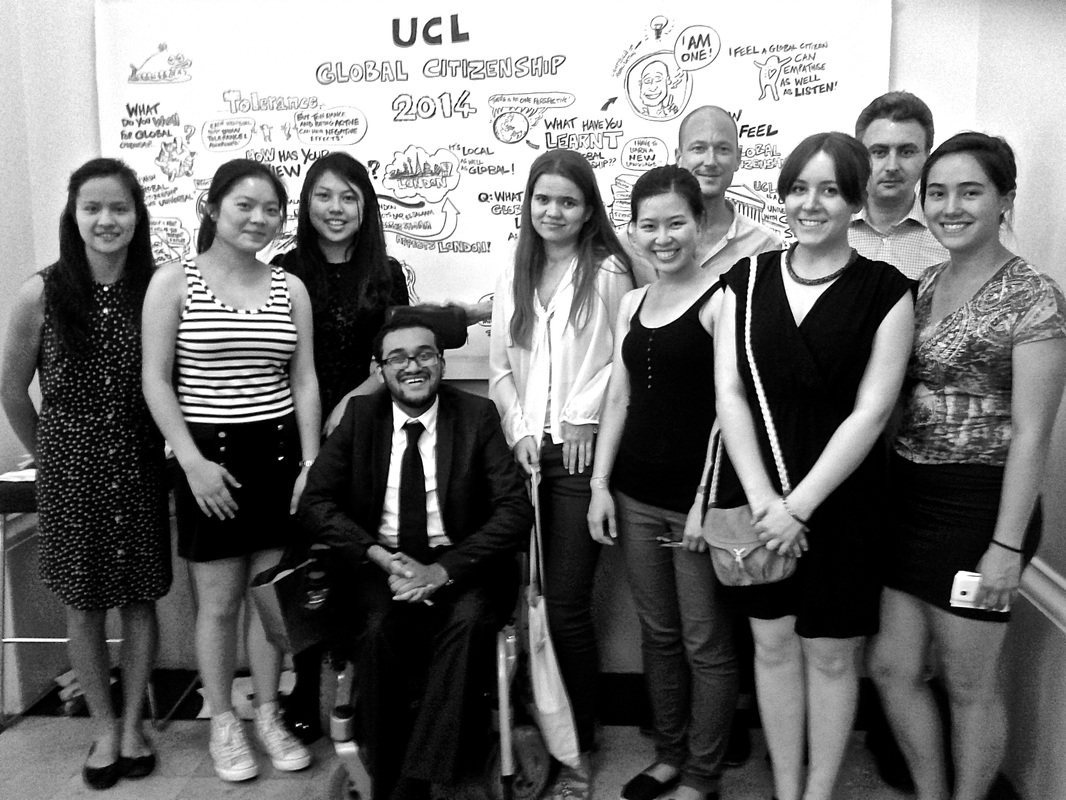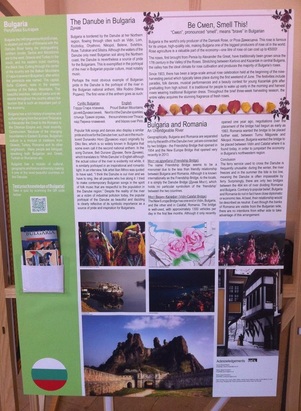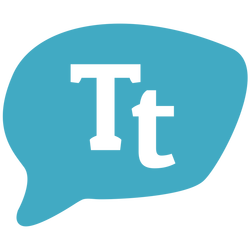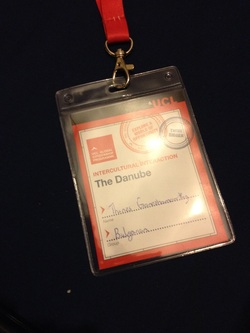 Здравейте (Hello) everyone! In my last two weeks of my first year at UCL I had the chance to take part in the first year program of the UCL Global Citizenship Program. This was something which I signed up for close to the beginning of the new year and went into without really knowing what to expect. The UCL website described the focus of the program as "The first year courses focus on the UCL Grand Challenges – enabling students to tackle the same key global questions as UCL’s world-leading researchers. The courses are specially designed to be multidisciplinary, accessible and enjoyable." Within the program I was able to pick a strand on which to focus on, the strands which were available were:
I chose to follow the inter - cultural interactions stream, which had a particular focus on The Danube. "The Danube is one of Europe’s major rivers, passing through 10 countries as it flows from Germany to Romania. It is both a barrier and a bridge to cooperation, a cause and a cure for conflict: this course will explore both sides of the river’s role in bringing cultures together and keeping them apart, through history, politics, environmental science and literature. Students will also have the opportunity to undertake taster lessons in one of six Danubian languages." I had the opportunity to learn about the language and culture of Bulgaria. I will be sharing my experiences below. As well as the language taster aspect of the program, the other exciting thing was the chance to get to meet new people from around UCL. The special thing about this program is the fact that it attracts people from all different disciplines and faculties at UCL. I was fortunate enough to be placed in a group with fabulous, amazing and dedicated people (pictured above), the reasons why I will speak about later. Over the two weeks our time was split between lectures about the Danube, our language sessions and project tutorials where we got to work on our outputs for the two weeks. The outputs would be the ultimate products of our two weeks on the program. The outputs we had to produce was a poster and a short documentary film (both which can be found below). 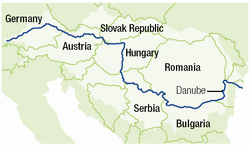 The Lectures The lectures for me was a real chance to understand more about the Danube region and the impact it has. The Danube runs through a lot of the countries that I study as part of my degree, therefore, this course turned out to be quite pertinent to my interests. The lectures varied in topics surrounding the Danube, ranging from what the history of the Danube, to the languages of the Danube, to the anthropological history of the Danube to even considering the economic and international relations of countries within the Danube and beyond. We were fortunate to have very enthused and impassioned lecturers who were able to guide us down the Danube in all senses (culturally, historically, anthropologically, economically, politically). Although I thoroughly enjoyed all the lectures, I think my personal highlights of the lectures were the ones that focussed on the people and the languages of the Danube. That interest I believes comes from the very discipline I study, I study a lot of politics within my degree and up till this point I had not had much of a chance to explore the cultures and people of the regions of which I am studying. This program, unexpectedly provided me with that opportunity to learn and submerge myself within the very thing I was craving. Short of going to the places along the Danube myself, this program gave me the chance to learn and experience these countries from afar, for the moment. If I was to speak a little on my favourite lecture, which was the one entitled "A Stream of Languages: Speech along the Danube" given by Ádám Nádasdy. He picked up on a few things which I was not aware of prior to this lecture in relation to language. Being a bilingual speaker myself, speaking both Tamil and English, I was not aware of the existence of the external and internal histories of languages. External history refers to the social and geopolitical history of the language whereas internal history refers to the historical development of its linguistic forms such as the existence of genders within the language as well as whether the language has articles or not. Having learnt German for six years at Secondary school I learnt the importance of articles and genders, hearing that some languages do not have articles and genders and its meaning is determined by its context was something which I found rather fascinating. Further, the move by the Romanian language to the Roman alphabet from the Cyrillic was something I found rather intriguing, it was a move by Romania to become more westernised. This was intriguing to me as Romania was apart of the Soviet Union and as such the Russian government mandated that Cyrillic must be used for all public communications in all federal subjects of Russia, to promote closer ties across the federation. Therefore, this move to the Latin alphabet was something that was surprising. The Language Sessions The language sessions were in the afternoons, providing a welcoming way back into our afternoon sessions. We had two excellent tutors to take us through our course. In my short time on the course, we had the chance to learn simple greeting and introductions, as well as the main features of the modern Bulgarian language, about the existing Bulgarian communities in London, images of the Danube, about Bulgarian food, Bulgarian celebrations and Bulgarian culture through its literature, poems and music. We had the chance not only to learn about Bulgarian food, we also had the chance to taste some Bulgarian snacks courtesy of our tutor (pictures of which can be found below). Further, the exciting information we found out about Bulgaria in London really lit my and our light to go out and find and seek these examples of Bulgarian culture in London. Two of the main things we learnt about was the Bulgarian chapel in London and the Bulgarian food market, both of which we went to see as part of our tour around London to help us prepare for our outputs. I will discuss more about this in the next section. Please find below a small section written in Bulgarian about myself as a profile of sorts. Казвам се Тинес. Аз съм на 20. Уча политология в UCL. Приятно ми е. (My name is Thines. I am 20. I study Politics at UCL. Pleased to meet you.)
Final thoughts and summary Overall, this summer school has been a fantastic experience. I have learnt and experienced so much in my time on this program and I would highly recommend this program to any first year Undergraduate student thinking of taking this course in the coming years. The thinking behind this summer school was to make us think of what it means to be a Global Citizen and how we can become more of a global citizen. Having completed these two weeks, I believe my ideas and thoughts surrounding being a global citizen have been clarified. I think the concept of being a global citizen is very important, in a globalised world, which I believe we are in, it is important we become citizens of the world and we live as though we are part of one united world and not just as part of one country. We are so reliant on other counties and other people in order to survive and to live what we consider to be a full life, I believe we have to be global citizens. To be a global citizen, I believe you have to be tolerant of peoples ideas, you have be accepting and you have to be willing to be open minded about what is going on. I think all these factors are very important to becoming a global citizen. If the existence of these factors were prominent in the UK then maybe Damyanka and her family's transition to the UK would have been easier. To end, I would like to finish with a quote that we were all given at the start of our program and sums up how I feel about global citizenship. "Where are you from, O Diogenes of Sinope?!" Click below to read through the blog posts which our group posted during our two weeks on the course. Please enjoy our reflections on the program as well as on Bulgaria. http://danubeonthames.wordpress.com/bulgaria/
1 Comment
|
